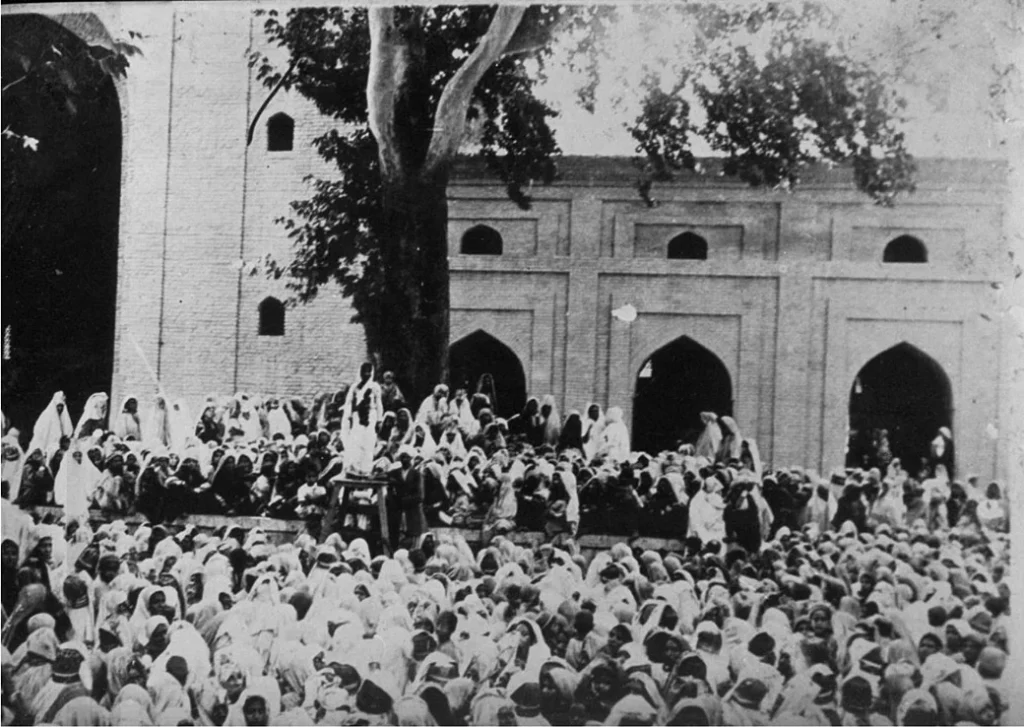Kashmiris on both sides of the Line of Control (LoC) and around the world are observing Kashmir Martyrs’ Day today. It is to honor the martyrs who sacrificed their lives on July 13, 1931, in their struggle against Hindu subjugation.
People are holding rallies, seminars, and conferences in Azad Kashmir, Pakistan, and major capitals worldwide. They pay tribute to the 22 Kashmiri martyrs who were victims of the Dogra forces’ bullets.
On that fateful day in 1931, known as the infamous 1931 Martyrs’ Day, Dogra forces launched a brutal assault on innocent Muslims. The tragic event occurred during a protest held in solidarity with Abdul Qadir Khan, who was unjustly facing a trial.
As the protest gathered momentum and the noon hour approached, the muezzin’s call to prayer infuriated the authorities. In a shocking act of brutality, the police shot the first muezzin, attempting to silence the protestors. However, another brave muezzin stepped forward to continue the call to prayer, only to meet the same tragic fate.

Unable to suppress the determination of the protestors, the authorities resorted to indiscriminate firing. The firings resulted in the martyrdom of twenty-two Muslims and left over a hundred injured.
Since that tragic day, Kashmiris have annually observed Kashmir Martyrs’ Day on July 13 to honor the memory of those who lost their lives in the pursuit of justice and freedom.
In 2019, the Modi government attempted to erase the significance of this day by abolishing the official holiday commemorating July 13, which was met with widespread condemnation.
This decision was seen as an insult to the suffering and resilience of the Kashmiri people. Critics argue that it aimed to undermine the importance of the tragic event and suppress the voices seeking justice.
Despite this setback, Kashmiris and their supporters worldwide continue to observe Kashmir Martyrs’ Day with unwavering determination.
Who was Abdul Qadeer Khan?
Abdul Qadeer Khan was an individual who played a significant role in the Kashmiri uprising of 1931 against the Dogra rule. He gained attention for his impassioned speech at Khanqah-i-Maula, a prominent location in Kashmir, during the protest meetings.
Abdul Qadeer’s background and place of origin are not definitively known. However, he actively participated in the protest gatherings and on June 21, 1931. He delivered a spontaneous speech that deeply resonated with the crowd.
According to Rashid Taseer’s account in “Tarikh-i-Hurriyat,” Abdul Qadeer’s speech was powerful and inspiring. He urged his fellow Muslim brothers to resist the tyranny and brutality they were facing. He emphasized that relying solely on force would not end their suffering or address the disrespect shown towards the Holy Quran.
Abdul Qadeer called upon the people to rely on their own strength and wage an unwavering struggle against oppression. He pointed towards the palace, passionately urging them to “raze it to the ground.” Recognizing their limited resources, he acknowledged the absence of machine guns but highlighted the abundance of stones and brickbats they had at their disposal.
After Abdul Qadeer’s speech, the authorities took swift action and arrested him on June 25. He faced charges of “sedition” and “wantonly giving provocation with intent to cause a riot” under the Ranbir Penal Code. His trial began on July 4 in the Court of the Sessions Judge in Srinagar. The proceedings attracted a large gathering of Muslims who gathered in the court compound on several dates in July 1931, eager to witness the trial unfold.


